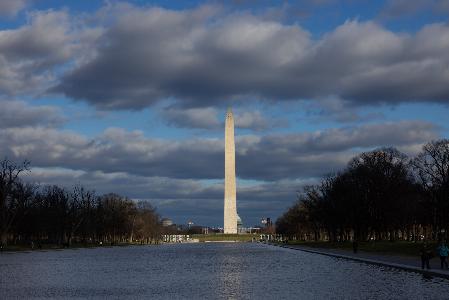When D.C.’s #OpenDataDay left us mulling over what public and private sector collaboration could look like when it comes to making open data meaningful and actionable for every day citizens, we didn’t expect to see a real life example so soon.
Then, on Monday, the White House unveiled The Opportunity Project.
The Opportunity Project, the website declares, “is about all of us working together to increase opportunity by harnessing the power of data.”
Practically, over the past couple months, the White House has collaborated with some other federal government agencies, a bunch of cities (including the District) and key private sector partners to, first, release lots of data and, second, make something out of it. The data is being collectively called the “open opportunity data” and the projects, well, they’re just a sneak peek at what’s possible.
The project, as advisor to U.S. CTO Aden Van Noppen said in her opening statement, is a part of the melding of two of the Obama administration’s goals — creating opportunities for everyone and using new technology. Thus, the data and the tools are focused on how citizens can maximize access to opportunity, even given other constraints on lifestyle.
From where we’re sitting, the tools debuted on Monday, as well as the event itself, were a bright indication for the potential of public/private partnership in the open data space.
Why it matters
Here’s the breakdown — open data is a wonderful thing. It can be deployed to help families pick neighborhoods to live in, young mothers pick schools to send their children to, commuters decide how to get to work and much, much more.
However, as we’ve written before, different people have differing levels of access to raw data. Many, in fact, have no meaningful access at all. So crucial to unleashing the power of open data on all those families and young mothers and commuters is creating tools (built on the open data) that everyday citizens can interact with and utilize.
Now, the data itself lies within the purview of the government. But the private sector, often, is the realm with the resources to create user-facing tools. How can the public and private sector work together to promote and legitimize each other’s strengths?
The Opportunity Project demo day was one example of what this collaboration could look like IRL: The government releases data, the private sector creates cool things, and then the government gives a platform for those cool things to be discovered, discussed and improved upon. Simple.
Twelve great tools were unveiled on Monday — tools that can help everyday users find affordable housing, good schools, trustworthy neighborhood information and more. But as Cecilia Muñoz, director of the White House domestic policy council, said as she closed off the launch event, this is “the tip of the iceberg” in terms of what’s possible.
We hope it’s also the tip of the iceberg in terms of seeing public/private collaboration on open data.
Also, if you haven’t explored The Opportunity Project page yet, go check it out.
Join the conversation!
Find news, events, jobs and people who share your interests on Technical.ly's open community Slack

DC daily roundup: Tyto Athene's cross-DMV deal; Spirit owner sells to Accenture; meet 2GI's new cohort

DC daily roundup: $10M to streamline govt. contracting; life sciences might dethrone software; Acadia's new $50M

DC daily roundup: the DMV's VC cooldown, SmartSigns for safer driving; Rep. Schiff's AI copyright bill

